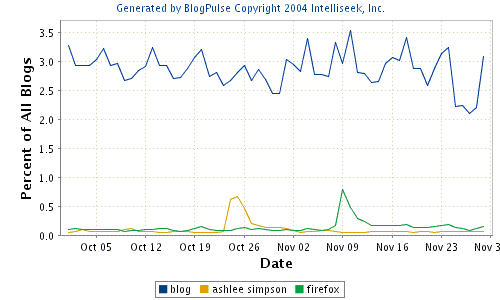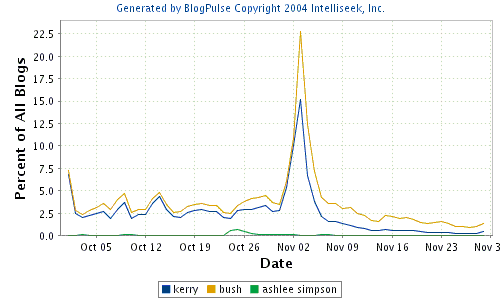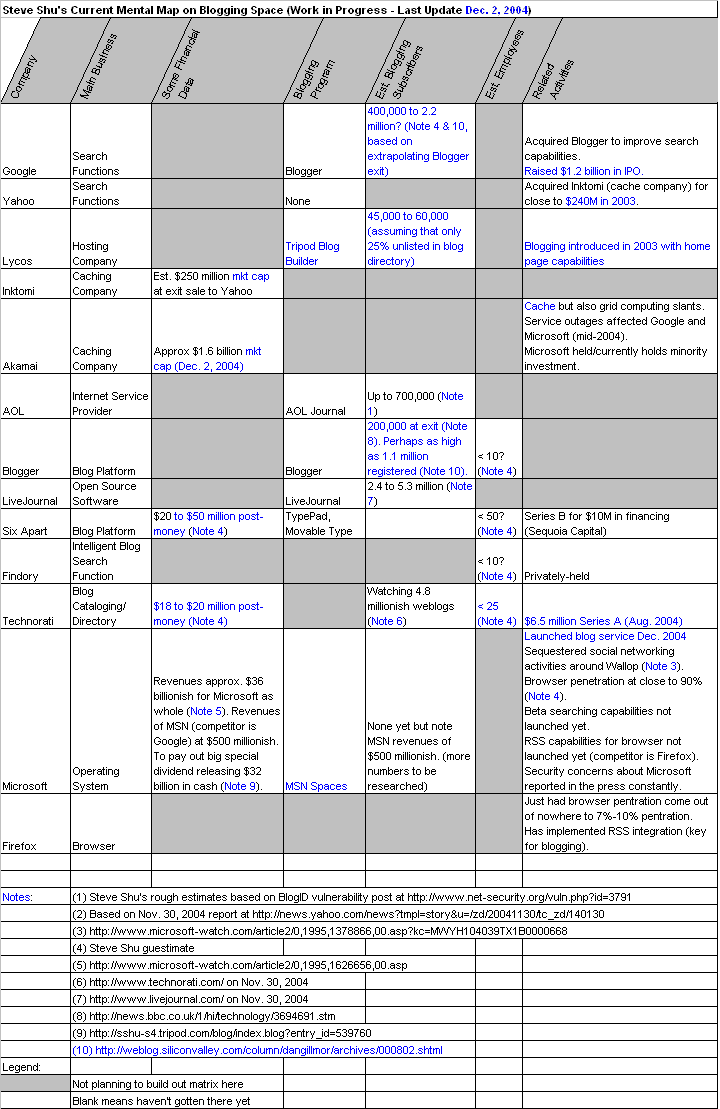Topic: 4) A Random Walk
There are some that have indicated that Henning's research is flawed in that it does not address this, that, and the other thing. Yet others that criticize the research may have misunderstood Henning's use of statistics terminology. I lean towards the perspective that Henning's research was on target and that the scope of the research and limitations had been clearly cited in the original release.
That said, what is interesting to reflect upon as we draw to the end of 2004 is how the picture portrayed in "The Blogging Iceberg" has changed.
On the one hand, it appears unlikely that the hosted blogosphere will have grown to more than 10 million by the end of this month. Nevertheless, the blogosphere is clearly growing very rapidly as cited by sources like David Sifry of Technorati.
On the other hand, Henning's observation of nanoaudiences has begun to take shape in other areas. Numerous blogging authors are starting to point out the increased formation of microbrands. Although Henning refers to nanoaudiences in the context of small blog audiences consisting of family, friends, etc., the concept of microbrands stems directly from the nanoaudience concept. Microbrand blogs have developed identities analogous to niche magazines like Cigar Aficionado or Modern Drummer. In any case, I suspect the nano-micro-thing will continue to play out given sheer economies and that blogging may have an oversupply of authors right now.
On the demographics front, things didn't change that much in 2004, and I don't expect the blogger makeup on US soil to change all that much in 2005. That said, blogging technologies are going to be much more widely available given 2004 happenings such as Microsoft's entry with MSN Spaces and venture capital financing of Six Apart and Technorati, to name a few events. Who would have known that "blog" was going to be the #1 searched word and added to the dictionary?
Although Henning's research did not cover sociological impacts, it probably would have been difficult back in 2003 to predict that blogging would have created such a polarization effect with people. As evidenced by the massive split in the election results, I think that users are beginning to become more acutely aware of the power of a blog author to get a polarized readership (i.e., there are either those that love you or hate you). As companies begin to grapple with corporate blog policies and use of blogging as an informal marketing channel, it will be interesting to see how the polarization effect (if even mildly inherent to the beast) can affect customer acquisition and retention strategies.
2004 has been a year of blog activity for sure. For 2005, I personally expect to author a little more on the software markets. More details and experimentation to come.
Steve Shu
Managing Director
S4 Management Group
Email: sshu@s4management.com
Web: http://www.s4management.com
Posted by sshu-s4 (c) S4 Management Group LLC
at 12:01 AM CST
Updated: December 15, 2004 12:57 AM CST

 While researching information on Internet traffic patterns, I ran across the following
While researching information on Internet traffic patterns, I ran across the following 

